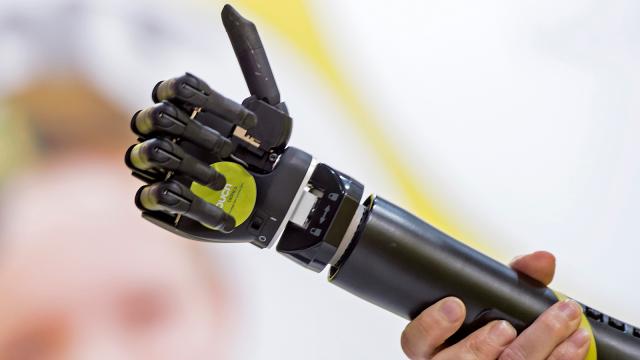Welcome to Fitmodo, your regular weekly round up of the news you need to know to keep your earthly form in top shape — from fitness advice to breakthroughs in medical research.
This week: Why do you stay up so late, a tour of the world’s largest prosthetics fair and advances in artificial wombs.
Why Are You Always Staying Up Past Your Bedtime?
The consequences of not getting enough sleep are evident to all of us — and yet we’re constantly staying up later than what our internal biological clocks are telling us. A new study shows the elusive nature of what’s to blame.
A new user data-driven study published in Scientific Advances is providing a fascinating glimpse into global sleep patterns, showing that the Dutch get about an hour more sleep each night than people in Singapore or Japan. The research also shows that women tend to get more sleep than men, and that the collective variability of our sleep patterns gets smaller as we age. What’s more, the study shows that social factors are preventing us from honouring our circadian rhythms, causing us to go to bed later than our internal biological clocks would like.
[clear]
Take An Uncanny Tour Of The World’s Largest Prosthetics Fair
The world’s largest orthopedics event is happening right now in Leipzig, Germany. From prosthetic legs that enable people to run faster to exoskeletons that can make the disabled walk again, OT World 2016 is showcasing some of the most futuristic inventions you’ve ever seen. They’re also creepy as hell.
Bionic arms and ultra realistic limbs litter the showroom floor as over 500 exhibitors from 43 countries show off new ways to improve human mobility. You’ll also find orthotics, orthopaedic footwear technology and compression therapy gadgets geared towards improving people’s lives. But based on the photos from the event, this industry seems to be inching towards creating a superhuman race of cyborgs.
[clear]
Artificial Wombs Just Got One Step Closer To Reality
Scientists have sustained human embryos in a petri dish for 13 days, shattering the previous record of nine days. The breakthrough will allow researchers to study early foetal development in unprecedented detail, and brings us one step closer to viable “artificial wombs”. But it’s adding fuel to an already heated ethical debate.
Two separate papers published this week, one in Nature and one in Nature Cell Biology, have reported culturing human embryos for nearly two weeks, going well beyond previous efforts. There’s no reason to believe that the embryos couldn’t have survived beyond the two-week mark, but the experiment had to be halted to adhere to the internationally agreed 14-day limit on human embryo research.
[clear]
Also catching our eye:
- Try as we might to fight or deny it, old age will impact our running and athletic ability. This calculator on Lifehacker Australia estimates how much slower you’ll run with age.
- Need insiration for working out with your bub? Business Insider took a look at Uma Mother, a yoga and meditation studio in California with classes designed to empower postpartum mothers.
- Popsugar Australia checked out Hypoxi — which promises to deliver targeted weight loss by encouraging your body’s natural fat-burning system to “work smarter, not harder”.
